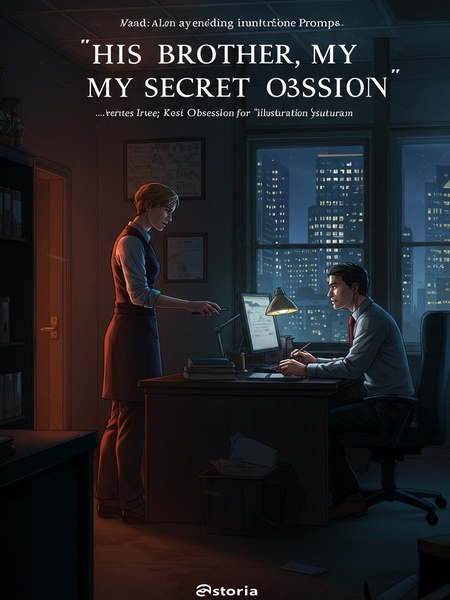Chapter 5: The Brothers’ Rift
Next, I read the statement from the day police brought Derek in.
Derek gave up little. Here’s what they got—Derek Harris, born 1981, 31 years old, Maple Heights. Didn’t finish high school. Lived at 302, Unit A, Building 11, Southside Apartments. Out of prison two years, worked six months at the machinery plant, now unemployed. His only income? Money wired from his brother.
Police checked: Marcus had been sending Derek living expenses every six months—just enough to get by. No big brotherly love, but not total neglect either.
I thought to check their communications. In two years, not a single call or text, except for a few two years back. They hadn’t even saved each other’s numbers. That was weird.
To dig deeper, I needed to know more about the family. Their mom died ten years ago; only their dad was left.
Mr. Harris was a retired high school teacher with late-stage lung cancer, in the city hospital, less than two months to live. When he found out about the murder, his condition crashed, and he was rushed to the ICU. He only got out two days ago.
He was both victim’s and suspect’s father—a heartbreak I could hardly imagine. You could picture him: frail, hollow-eyed, sitting in a sterile hospital room, grief pressing in from all sides.
Because he was so sick, the police got a statement from his nurse.
The nurse said Mr. Harris had been in the hospital for a year and a half, terminal lung cancer with bone metastases. Only days left.
Marcus was the one who handled everything, even if he and his dad argued a lot. He was still dutiful. Derek only showed up once at first, then disappeared for months, only coming back more often in the last two months. Every time he visited, he made the nurse leave. He always left looking angry and up to something.
Did the nurse overhear anything? No, Derek spoke quietly. But twice, the nurse peeked in and saw Derek holding paper and pen, trying to get his father to write something. The old man refused.
I had a gut feeling—he wanted a will.
The nurse said the second time, Derek caught him peeking and stared him down, blank-faced, on his way out. It freaked the nurse out so much he couldn’t sleep for days.
Did the nurse tell Marcus? No, but Mr. Harris did. The nurse overheard him telling Marcus, "How much money can I have left? Treating your mother, treating myself, it’s almost all gone. The old house in the country isn’t worth much, and he’s still thinking about what little I have left…" Then he coughed, angry. Marcus just stared, maybe saw the nurse walk in.
The two brothers never showed up together. The nurse summed it up: "I think the younger son saw the old man was dying and wanted to fight for the inheritance. I’ve never seen him pay the hospital bills—what an ingrate."
It sounded like a classic inheritance fight—something I’d seen in my own civil law practice. If there’s no will, the estate splits 50/50. Marcus had done the heavy lifting, so maybe he deserved more, but the law didn’t see it that way.
If Derek thought he deserved more, he’d need a will. But forcing a dying father to sign one would make it invalid. Even if he killed his brother, state law says if you murder another heir, you lose your right to inherit. It’s like setting your own house on fire.
Derek wasn’t confessing, so motive had to be pieced together from evidence. Killing his brother for money was as classic a motive as they come.
But if that was the whole story, why did the evidence feel like a puzzle missing its last piece?
Continue the story in our mobile app.
Seamless progress sync · Free reading · Offline chapters